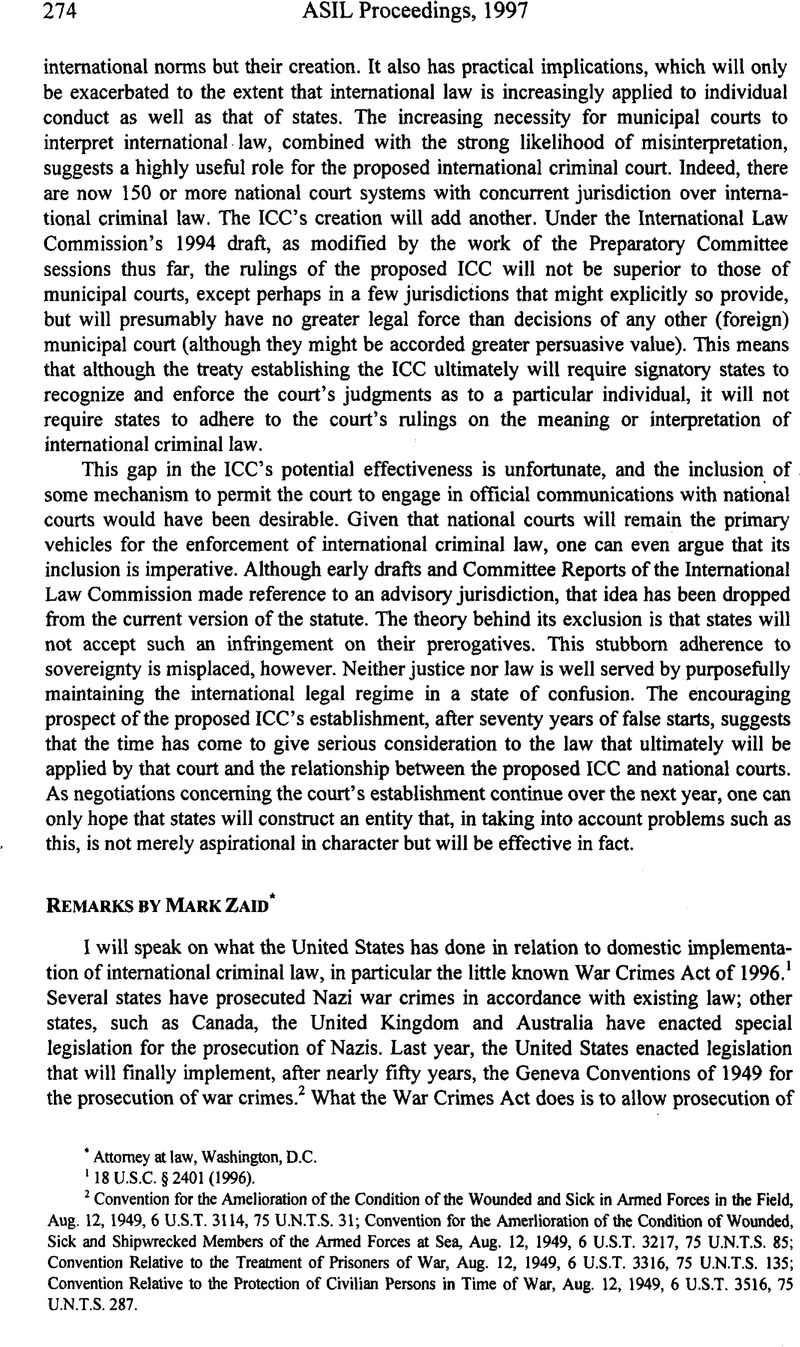No CrossRef data available.

1 Christine Gray, Judicial Remedies in International Law 11 ff. (1987).
2 Trail Smelter Case (U.S. v. Can.), 3 R.I.A.A. 1905 (Apr. 16, 1938).
3 Case Concerning the Factory at Chorzow (Ger. v. Pol.), 1928 P.C.I.J. (ser. A) No. 17 (Judgment of Sept.
4 Doc.ADP/47, para. 5.24.
5 D0C. GPR.D5.1/R.
6 Not adopted.
7 Bello, Judith Hippler, The WTO Dispute Settlement Understanding: Less is More, 90 Am. J. Int’l L. 416 (1996)CrossRefGoogle Scholar; Jackson, John H., The WTO Dispute Settlement Understanding—Misunderstandings on the Nature of Legal Obligation, 91 Am. J. Int’l L. 60 (1998)CrossRefGoogle Scholar.
8 Working Party Report, Netherlands Action under Article XXIII: To Suspend Obligations to the United States, Nov. 8, 1952, GATT B.I.S.D. (1st Supp.) at 62 (1953).
9 Doc. C/M/220.
10 This was the Bill according to which each WTO dispute settlement judgment involving the U.S. should be reviewed by a panel of (former) federal judges. If their view was negative, the U.S. could withdraw. This Bill is well-known in trade circles.
11 Discriminatory withdrawal of TRIPs concessions is nearly always impossible, because it amounts to discriminatory expropriation, which is prohibited by most national legal systems.